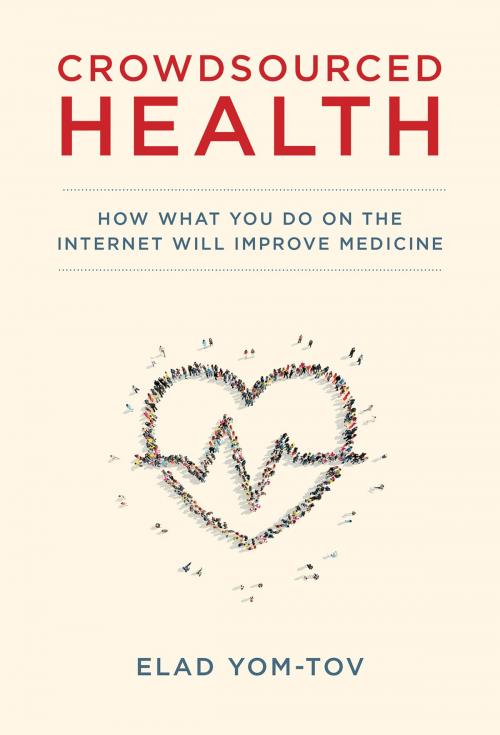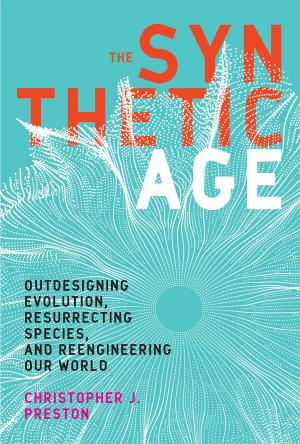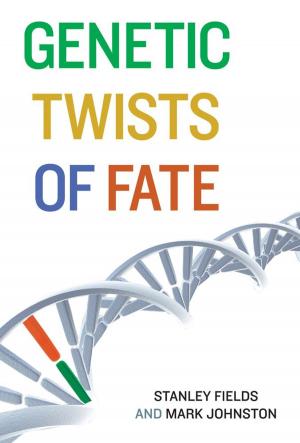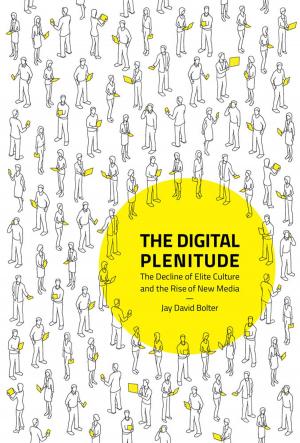Crowdsourced Health
How What You Do on the Internet Will Improve Medicine
Nonfiction, Computers, Database Management, General Computing, Internet| Author: | Elad Yom-Tov | ISBN: | 9780262334815 |
| Publisher: | The MIT Press | Publication: | March 11, 2016 |
| Imprint: | The MIT Press | Language: | English |
| Author: | Elad Yom-Tov |
| ISBN: | 9780262334815 |
| Publisher: | The MIT Press |
| Publication: | March 11, 2016 |
| Imprint: | The MIT Press |
| Language: | English |
How data from our health-related Internet searches can lead to discoveries about diseases and symptoms and help patients deal with diagnoses.
Most of us have gone online to search for information about health. What are the symptoms of a migraine? How effective is this drug? Where can I find more resources for cancer patients? Could I have an STD? Am I fat? A Pew survey reports more than 80 percent of American Internet users have logged on to ask questions like these. But what if the digital traces left by our searches could show doctors and medical researchers something new and interesting? What if the data generated by our searches could reveal information about health that would be difficult to gather in other ways? In this book, Elad Yom-Tov argues that Internet data could change the way medical research is done, supplementing traditional tools to provide insights not otherwise available. He describes how studies of Internet searches have, among other things, already helped researchers track to side effects of prescription drugs, to understand the information needs of cancer patients and their families, and to recognize some of the causes of anorexia.
Yom-Tov shows that the information collected can benefit humanity without sacrificing individual privacy. He explains why people go to the Internet with health questions; for one thing, it seems to be a safe place to ask anonymously about such matters as obesity, sex, and pregnancy. He describes in detrimental effects of “pro-anorexia” online content; tells how computer scientists can scour search engine data to improve public health by, for example, identifying risk factors for disease and centers of contagion; and tells how analyses of how people deal with upsetting diagnoses help doctors to treat patients and patients to understand their conditions.
How data from our health-related Internet searches can lead to discoveries about diseases and symptoms and help patients deal with diagnoses.
Most of us have gone online to search for information about health. What are the symptoms of a migraine? How effective is this drug? Where can I find more resources for cancer patients? Could I have an STD? Am I fat? A Pew survey reports more than 80 percent of American Internet users have logged on to ask questions like these. But what if the digital traces left by our searches could show doctors and medical researchers something new and interesting? What if the data generated by our searches could reveal information about health that would be difficult to gather in other ways? In this book, Elad Yom-Tov argues that Internet data could change the way medical research is done, supplementing traditional tools to provide insights not otherwise available. He describes how studies of Internet searches have, among other things, already helped researchers track to side effects of prescription drugs, to understand the information needs of cancer patients and their families, and to recognize some of the causes of anorexia.
Yom-Tov shows that the information collected can benefit humanity without sacrificing individual privacy. He explains why people go to the Internet with health questions; for one thing, it seems to be a safe place to ask anonymously about such matters as obesity, sex, and pregnancy. He describes in detrimental effects of “pro-anorexia” online content; tells how computer scientists can scour search engine data to improve public health by, for example, identifying risk factors for disease and centers of contagion; and tells how analyses of how people deal with upsetting diagnoses help doctors to treat patients and patients to understand their conditions.















